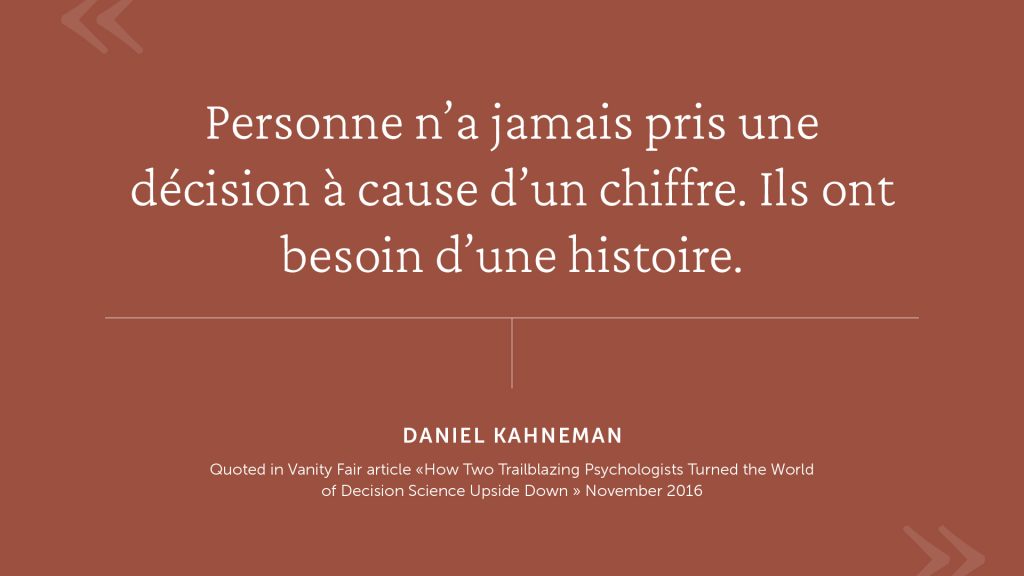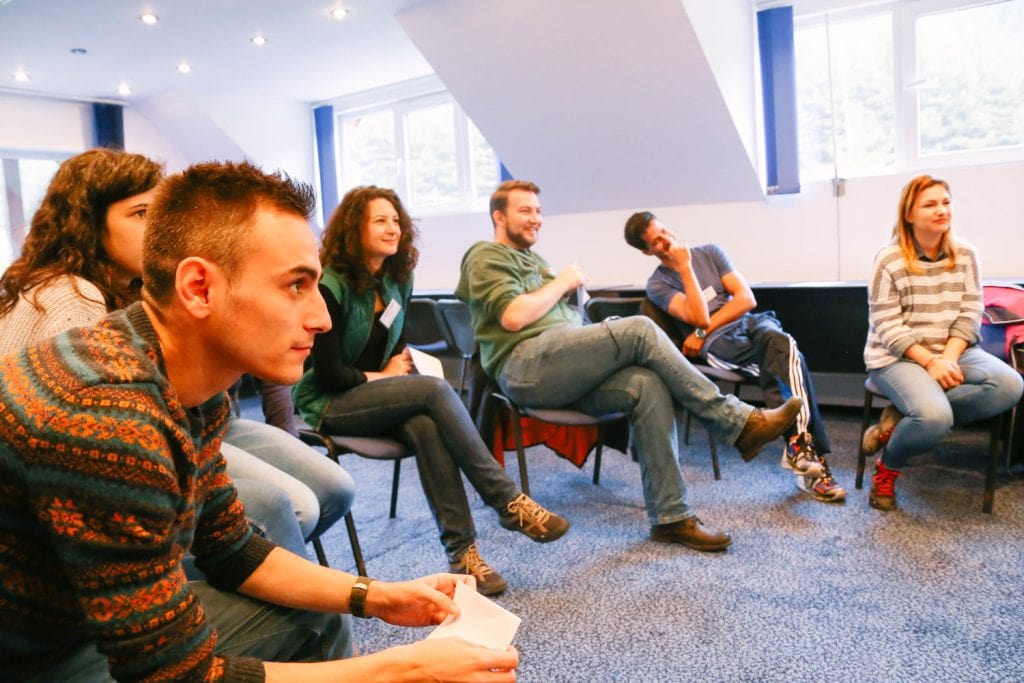Le marketing est toujours, à la base, du storytelling
Since the very beginnings of humanity, stories have shaped us as individuals, as families, as social groups, as a society. It’s through these stories that we vibrate, that we identify, and that we pass on our passions and concerns. It is through them that life in all its aspects makes sense. They teach us new points of view on the world around us and offer us different ways of understanding it; they move us, make us think and connect us to each other to form the social fabric that holds us together. They are an integral part of the human experience.
Many of the world’s most influential people – entrepreneurs, politicians and public figures – have the gift of storytelling. This ability to translate their vision into a compelling story captivates and inspires an audience, who then feel challenged by the message and embrace the narrator’s mission so that they, in turn, can take part in the story.

Human beings don’t process information in a linear or calculated way. They make sense of the world in ways that are impossible to quantify. This remains unchanged when acting in the role of customer, employee or consumer. There are many ways to use storytelling in your communications and content marketing to forge stronger links with your ecosystem. Based on a narrative structure, the storytelling approach aims to elicit emotion and reaction from a target audience, since people generally remember stories more than information. Studies in behavioral psychology show that an individual is 22 times more likely to remember a fact when it is presented as a key element of a story ( source: ).

Think of a story that has made an impression on you. Whatever story you choose, chances are it will include many of the following elements:
- Trials
- Lessons
- Engaging, relatable characters
- Familiar feelings
- Characters who act as guides
- The prospect of a better future
Votre histoire d’origine
Your origin story is what drove you to start your business. It’s your raison d’être, the reason you do what you do. It conveys your enthusiasm and your deepest motivations. It describes your path, your pitfalls and your successes, in all humility. It’s often the story you tell at the start of a pitch, fundraising event or conference. While it’s usually entertaining, it always serves to convey a message and establish the speaker’s credibility. Your origin story is about presenting your message in a way that makes it more than just a sales pitch. It creates a sense of empathy and trust, and should be easy to remember. It sets the stage for what follows.

L’histoire de votre marque (Brand story)
You tell this story to your customers and employees alike. It’s a story that speaks to the value of what you do, and translates into corporate culture. In fact, this story is plural. It’s made up of a collection of little stories about your ambitions, your successes, your day-to-day life and how far you’ve come. As your brand’s number-one ambassador, you’ll tell these stories over and over again. They will be understood, remembered and repeated by other ambassadors (employees and customers), who form the basis of your community. These stories are your mortar. They are what holds everything together.
L’expérience humaine
Whatever your products or services, the story behind them needs to be brought back to a human experience. If you’re selling a technological solution for automating processes, don’t focus on the performance of your tool, but try to explain it from the point of view of an employee, who will then have more time to devote to more creative tasks or quality family time. In other words, don’t talk about what the product can do, talk about what it enables your target audience to do.
The goal of storytelling in content marketing is always to speak with (not at!) a particular audience by creating relevant content in the right medium. People like to be told about themselves. They need to be able to recognize themselves: their own emotions, their challenges, their successes, their experiences.
L’histoire de votre équipe
Your team, too, needs to feel involved in your company’s mission and vision. Talking about your employees’ successes helps your team members feel valued in their work. It helps them better understand objectives, feel committed and accountable for their actions. When your team is feeling the pressure and sees work as a series of tasks, it’s essential to remind them of their part in the big story you’re building together, and to reinstate a sense of pride in and for the organization.

To Conclude
Good stories change minds and move us to action. Isn’t that what marketing is all about? Simple as it may seem, storytelling is an art. While some people are naturally gifted at it (not many, let’s be honest), for the majority, it takes an enormous amount of work to find the right story to increase a brand’s appeal. And if the story is good, the accompanying visual must be equally engaging.. but visual storytelling is for another post.





